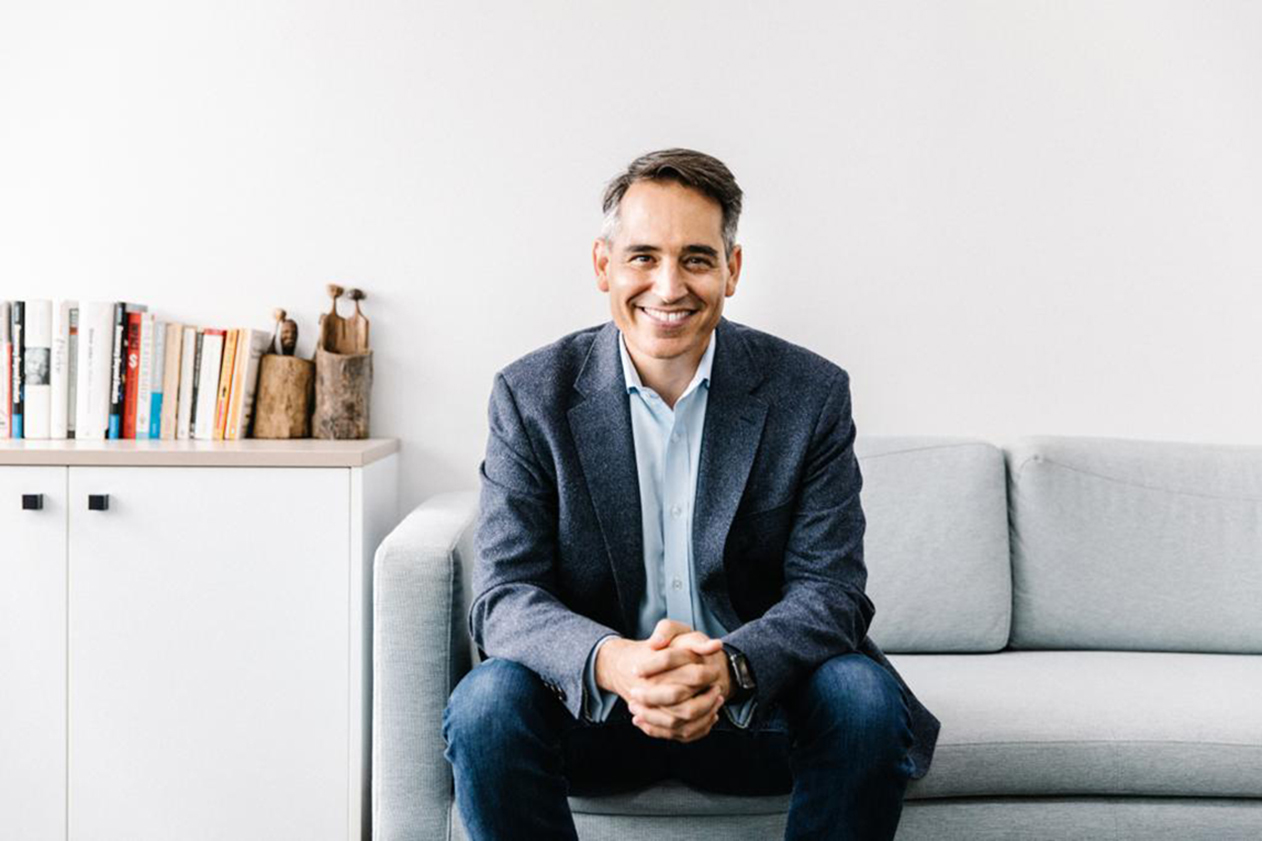
Featured Item

Empowering people more valuable than a Queen’s honour
To be named on the Queen’s 2022 Birthday Honours list with one of Australia’s highest civilian honours was a wonderful surprise for South African-born social entrepreneur Andy Kuper, but it’s far more important to him to empower others.
He reached a milestone in the latter – what Kuper considers the highlight of his career – just three days after being awarded an AO, an officer in the general division of the Order of Australia on 13 June for his role in founding and building LeapFrog Investments, a global impact investment corporation.
“We said that LeapFrog companies would reach 25 million low-income people with essential services, which everybody thought was a wild goal. But on 16 June, we announced that our companies had reached 250 million low-income people across 30 countries – 10 times our original aspiration. At the same time, we also announced that our companies had grown 27% a year and had outperformed major investment benchmarks across every region and strategy. So, after 15 years, we have demonstrated the power-of-profit-with purpose at a scale that no one previously imagined possible.”
The royal recognition was for his “distinguished service to the impact investing industry, to global business leadership, and to financial inclusion” but assisting humanity is Kuper’s driving force.
His profit-with-purpose business ensures that tens of millions of families have access to quality medical services, medicines, insurance, savings, pensions, credit, or remittances for the first time. Kuper launched the company with former American President Bill Clinton and two South African co-founders Jim Roth and Gary Herbert in 2008.
“It’s a great honour for me, but also my family, community, and all the people in the impact investing industry who have worked for so long to bring it from being a non-existent industry to something that has raised more than a trillion dollars and is positively affecting hundreds of millions of lives.”
Kuper says he had “the full South African spectrum” during his school days. Having started at Laerskool Boskop while living in a farming area, he went on to attend a Montessori school on the Jukskei River before going to Woodmead School, the first fully multiracial school that existed during apartheid, and then spending the last three of his school years at King David Victory Park.
Kuper believes all this had a profound impact on the direction his career took.
“I had early exposure to how the world can be very badly structured, and how committed individuals and communities can seek to change that. I was on the Union Buildings’ lawns in Pretoria on the day Madiba was inaugurated. I still remember when we all heard a massive bang and thought something bad had happened, and then looked up and saw six jets trailing the new colours of the South African flag and saluting Nelson Mandela as president. So, for me, the sense that you can actually change the world in a very fundamental way started in South Africa.”
After matriculating in 1992, he studied a politics, philosophy, and an English literature BA honours at the University of the Witwatersrand before leaving South Africa to attain his master’s and PhD at the University of Cambridge in England and being a visiting scholar at Harvard University and Columbia University in the United States.
Studying philosophy rather than finance helped him to develop blue-sky thinking. “The point of philosophy is often to question assumptions, such as, ‘Is there a table here?’ ‘Why are we here?’ These sorts of questions tackle the basic structure of reality and turn out to be very good training for entrepreneurship and finance because it allows you to envision something systematically, to question the received wisdom that something isn’t possible.
“LeapFrog invests only in companies that serve low-income people, who, as defined by the World Bank, are living on an income of less than $11.20 [R180] per person per day. We invest in healthcare companies such as pharmacies and clinics, and we invest in financial-services businesses, such as insurers, pensions businesses, and so forth. For example, LeapFrog and Prudential Financial, one of the largest insurers in the world, bought a significant stake in Alexander Forbes, which has the largest number of clients who are relatively low income.”
One company LeapFrog invested in, Goodlife Pharmacy in Kenya, went from being a small chain of pharmacies to the largest pharmacy chain and health hub in East Africa. “It’s changing millions of lives,” says Kuper.
LeapFrog has also invested in Jumo, a financial technology company founded by a South African entrepreneur. “Jumo serves millions of low-income people who can get loans for anything from, say, $10 to $300 to start or grow their small business,” says Kuper.
Kuper co-founded the Global Impact Investing Network and the World Economic Forum’s Mainstreaming Impact Investing Working Group.
“The first is an industry association that tries to create standards and forums where impact investors can all work off the same metrics, processes, and understandings. That’s incredibly important, because once you have industry norms, investors know what they can benchmark you against and what they can expect from you. That allows them to commit capital. The second was around how we crowd very big investors into the space. In subsequent years, we’ve been pleased to see several such leading investors come in.”
Kuper is the author of the book, Democracy Beyond Borders. “It’s about how we can preserve democracy in a world where so much power sits with business, non-profits, and multinationals, in which none of us elect the leader or representatives.”
His other book is called Global Responsibilities: Who Must Deliver on Human Rights? “It’s about how you can assess who the agent of responsibility is, and hold them accountable for delivering on certain rights.”
Kuper still has strong ties to South Africa. “I come back to the country regularly. I still have an office, and one of our largest teams there. I’m often on the phone with Gary Herbert, the South African-based co-founder of LeapFrog, who has been working with me for 14 years. LeapFrog’s success is in good part a result of his moral compass as well as his excellence as a leader and investor.”










